Drastic Drop in ‘Militarily Useful’ British Vessels from 841 in 2009 to 495 in 2023
The UK has seen a dramatic decline in its ‘militarily useful’ vessel count, plunging from 841 in 2009 to 495 in 2023, signaling a significant shift in national maritime resources.
The fall in the number of ‘militarily useful’ British vessels from 841 in 2009 to 495 in 2023 represents a 41.14% decrease.
- 2009: The count of ‘militarily useful’ British vessels stands at 841. This year serves as a benchmark for observing future trends in the UK’s maritime capabilities.
- 2016: A report on UK armed forces equipment and formations notes a continued decrease in the number of such vessels. The count has dropped to 701 by the start of this year, indicating a significant reduction from the 2009 figures.
- 2021: The number of ‘militarily useful’ British vessels, including passenger, tanker, and dry cargo merchant ships, is recorded at 532, continuing the downward trend.
- 2022: The count further decreases to 495, with a notable decline in product and chemical tankers and container ships. This marks a continuation of the trend observed over the previous years.
- 2023: Current statistics highlight a stark drop to 495 vessels from the 841 recorded in 2009, culminating in a 41.14% decrease over this 14-year period.
According to report published by the UK Government regrading equipment numbers in and available to the British Armed Forces, there has been a substantial reduction in the United Kingdom’s fleet of ‘militarily useful’ British-registered vessels.
Defined as civilian ships that can be requisitioned under the STUFT (ship taken up from trade) protocol to support the UK Armed Forces, these vessels are vital for national defense and emergency response operations.
The 2023 statistics present a concerning trend: the count of these vessels, which includes passenger, tanker, and dry cargo merchant ships, has decreased to 495. This number represents a stark drop from the 841 ‘militarily useful’ vessels recorded in 2009.
The trend was earlier noted in the 2016 ‘UK armed forces equipment and formations’ report, highlighting a continual decline from the 2009 figures.
The historical significance of such vessels was demonstrated during the Falklands War of 1982, when a variety of civilian ships were requisitioned for military logistics. The current downward trend, particularly noticeable in product and chemical tankers, and container ships, points to a significant shift in the composition and readiness of the UK’s maritime fleet. Something, realistically, out with Government control.
The reasons behind this decline are likely to include a decrease in vessels registered under the British flag and the scrapping of older ships.


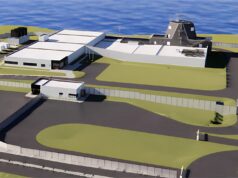
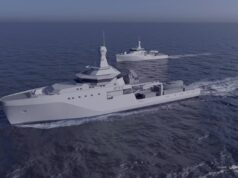
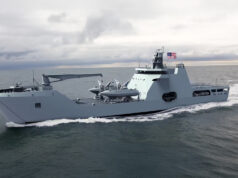
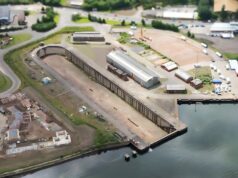
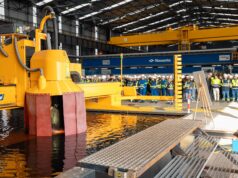
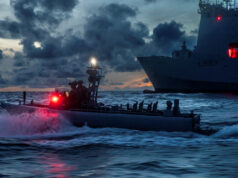

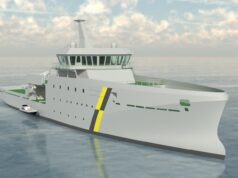

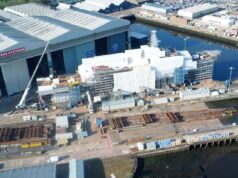

Simple answer – make vessels registered under British overseas territories also available for military shipping when required – as thousands of vessels are registered in these regions due to their tax and other such benefits.
Or simply state that any ship visiting UK ports more than, say, 3 times a year must be either registered in the UK, the country where it’s physical headquarters is located, or the country most visited by that ship.
You might suddenly find a lot of empty ports in the UK and empty shelf’s at supermarkets.
The ships would still be there. They still need to use the ports. Costs would go up though.
😂
ok theyre off to France!
Any ship flying a flag of the red ensign group can be requisitioned.
A British owned ship with a foreign flag could also be requisitioned quite easily.
If it’s registered abroad it’s not a British ship…
It is a British ship…
Any ship flying the red ensign is a British ship and as such can be requisitioned.
Crucially that means any Isle of Man or Bermudan flagged ships.
That’s the point. If it’s registered in Liberia it’s a Liberian ship and will fly the Liberian ensign…
What a good idea.
Here’s another one. The MoD could buy and lease certain types of vessels too. Ensuring a tight control over every aspect of design and use. With RN personnel (all ranks.) rotating onboard. Perhaps earning a share in the profits.
The government can influence the numbers by changing tax law to make it more financially attractive to fly the Red Duster.
And provide soft finance for acquisitions from UK shipyards for ships that were of STUFT use with appropriate mods.
Yes to both + a clamp down on foreign death trap ships where the owners hide behind multiple companies in multiple countries.
UK is a regulatory hell hole full of entropy so it would need first to change its administrative state culture.
Not gonna happen.
“ The reasons behind this decline are likely to include a decrease in vessels registered under the British flag and the scrapping of older ships.â€
And add that most vessels are generally larger.
The other thing missing from this discussion is the historical availability of soft finance to shipping owners in return for incorporating STUFT modifications. As well as the former rump state owned entities. BP & Shell used to have huge numbers of tankers and support vessels.
BP still has a huge tanker fleet, most of which is flying the red ensign.
Look at how many non uk ships registered to the uk flag so they could join the convoys (Armillo Patrols) up the persian gulf when the camel jockeys were kicking the shite out of each other in the 80s . Should work both ways me thinks .
As with tax why would you register in the UK which is more expensive when the law provides the means to domicile/register elsewhere.
The power lies squarely with the government to tighten up the law and say if a certain percentage of your business operates here then you need to be UK registered.
Then just move you business out or subcontract it to someone else giving you a legal break between your global operation and the local operations.
All good and valid points by all contributors. I would add into that mix several others for consideration. Lax inspection and standards by countries who are basically flags of convenience. Even in UK MACA is understaffed and funded. Unfortunately pay and conditions for crew on these flagged ships is also abysmal. As is Health and Safety and training.
The rise of third party logistics on land and Sea in the pursuit of higher profits.
I have personally witnessed in the eighties a ship passing through the North Sea oilfields in the night, with no crew member on the bridge for around 15 minutes. The reason being making coffee and a snack. The entire crew and the master were from the Philippines.
The ship at the time was on a charter for the MOD.
Its not just higher profits, over the past 60-70 years goods like cars, white goods consumer electronic, tools etc have all got massively cheaper compared with salaries making them much more affordable for the masses.
There is a even bigger shortage of UK seafarers to crew the vessels in time of crisis.
Exactly.you hit the nail on the head with that comment.
Uk is an island and doesn’t have a merchant navy.
We have a merchant navy but sadly is crewed by substandard foreign officers and crew, the Red Ensign has become nothing more than a flag of convenience.
In times of crisis will the UK be able to depend on foreign seafarers?
More “ever decreasing circles”ðŸ˜ï»¿.
There are few ships and those that exist are run by non-british crews. Hence it would be practically impossible to take up even a fraction of the merchant fleet from trade. Nobody wants to work at sea and if they did, the going rate is a dollar a day so nobody from Britain would be tempted.
The first ships we should be calling on are those of the RFA. With two types of tanker available it seems strange to operate all one type and have the other laid up. Three of one type and one of the other operational would ensure that crews remained current on both types of vessel so that in an emergency all six could be put to work.
In the event of a war, I thought the UK Gov ‘commandeered’ vessels such as tankers, cargo ships, passenger and cruise ships?
Only Ones flying a red ensign and that’s what has fallen useful ships flying a red ensign
Ahh right. Thank you.
You can just imagine another Falklands type war and requisitioning some of these modern ugly ocean liners with a bloody roller coaster on the deck….
Maybe a Disney owned example, you could have some bloke in a Mickey mouse outfit manning a GPMG on the roof!
With Argentina’s new president I think it highly unlikely we will be going to war with them, he far more likely to embrace the UK. Well for the next year at least 🙂
I think he’s planning something around the Falklands I can see a good few years or some very serious:
1) lovebombing the islanders to get them to see Argentina in a more positive light ( I would not rule out some serious attempts at Thuringia to buying the islanders into his views).
2) using every diplomatic means he can
3) using access to markets and resources to flavour the diplomatic sandwich…that’s open up to both the Falklands and the UK.
he really wants the Falklands as part of Argentina..but he’s an alt libertarian which means he’s not going to bang the old authoritarian drum…he’s going to try and get people to want to do it…I think it’s positive all told…although I don’t think he’s ever going to change the islanders minds…but if it keeps relations happy and improves trade..as well as stops china getting claws into Argentina even more ( I think this election was bad for Chinese influence..which is good)..
Agree, he’s already said the Falkland Islander will need to decide and they will need to be convinced over years to align with Argentina. Its going to be a hell of an experiment, lots of criticism from some already. same old lines like comparing him to Trump. Its going to be interesting to see which way the economy goes, after all his policies make Liz Truss look like Carl Marx.
its Interesting how everyone with very differing views gets put in the same basket, especially with regards the right wing basket..The new president of Argentina is actually a believer a form of anarchy….he’s a right wing anarchist, not a left wing one but still an anarchist..where as trump is a proper authoritarian..so to compare them is a big mistake as they are completely different on the political spectrum.
There is on a very basic level three states of both right and left wing politics ( well I simplify it down to that anyway)..so it’s not a continuum of left to right….a straight line which your put ( left or right) but more like a square box which you sit in..running along the y axis you have libertarian to authoritarian and the x axis left to right……but it’s not quite that simple as people on the same place in the y axis tend to have more in common that people on the x axis…so a right wing and left wing libertarian will agree on far more than a right wing libertarian and a right wing authoritarian.
Authoritarian right and left ( the extreme of this are seen in the Nazis and Bolsheviks..but this is very much were I see trump..he’s authoritarian in nature) both left and right are proponents of state power used to force their specific agenda be that right or left.
neoliberal consensus right and left ( this is essentially where British politics sits…both new Labour and Thatcherism sit in this band) it can be seen as centrist..but it’s not really it’s about politics based on the central belief in capitalism to create wealth and the state as a force to moderate society as well as balance personal freedom, be that the left wing or right wing versions.
Libertarian right and libertarian left (or anarchists…there is never actually been a libertarian government before ) both believe that states need to be removed and that power should be held by the individual…on the left that also believe this coincides with the principle that no one owns property or means of production and on the right that individuals should own property and the means of production and have a belief in a form of capitalism, but this should be controlled by the Individual ( nation states, multi national companies and corporations that are not owned by individuals are anathema to both ). Having an anarcho capitalist as the president of a nation will be very very interesting to see….Its actually a first ever in politics anywhere ( as they would never normally stand in elections).
It’s probably an over correction from years of mis management Argentinas political left..He’s not a the typical politician which is in his favour. Here one of his speeches.
“I think that the big problem in Argentina is a cultural problem. This is a society infected by socialism and what we need to achieve is to remove socialism from people’s minds and the main promoter of these ideas are the politicians…the libertarians are the only ones to confront the politicians and tell them that they are not the solution, that they are the problem. The politicians are a sort of sociopath who want to make us believe that we are mentally invaded and invalid in every sense because we cannot live without them. But in reality, those who cannot live without us are them…
“We are decent people, hardworking people and we don’t advocate for envy, hatred, theft or unequal treatment under the law. That abomination of social justice is the most unjust thing that exists, because it means stealing the fruits of someone’s labor and giving them to others just because I feel like it. And in that whole process, not only did they destroy the economy, they impoverished people. From 1970 to now, the size of the state tripled, and the number of poor people multiplied by six. And you know who the only ones who really prospered were? The politicians…The real income redistribution was from what we produce to the political parasites…The libertarianism was born to free us from the oppressive rulers.â€
It will be very interesting to see how it goes, Argentina is a proper basket case at present, 140+percent inflation etc. He also does not have control of the two chambers of their parliament either….we can only hope as a none basket case Argentina that is not in the pockets of china is quite important for that region ( and the US).
Apart from the fact that we have no Merchant Navy any longer, we also have no crews to man it. Just another example of how this country has gone down the pan.
I thought only about 60 merchant vessels went to the south Atlantic? Plenty to choose from. Probably more relevant for HM Government to create a bank which loans money to for commercial shipbuilding at an advantageous rate on the proviso that they are well built, British registered and have a duel military role. 😀
Hence the need for a properly funded Royal navy and RFA, the government need to stop the reliance on industry and allies. As an island nation this is paramount when it comes to the budget but HMG will do nothing while blabbing about record investment.
We had the biggest Navy in the world.Then we gave away the British Empire and killed off the navy. What do we expect the Navy is now useless.
Er, there’s a huge drop on military useful people….never mind bloody vessels!
I agree most if the population would rather surrender than join the military.
What a surprise…
Perhaps we could lease some from the Chinese? Theyve got a huge modern navy and a massive merchant navy…
Presumably they’re increasingly registering in places like Panama precisely because it minimises the potential burden on the operators.
This, unfortunately, is another example of a free and easy Government taking it’s incompetent eye of the ball and not giving a damn.
The UK shipping feet nearly doubled between 2003 and 2010 with careful husbanding under New Labour, and since then has fallen as described.
https://www.gov.uk/government/statistics/shipping-fleet-statistics-2022/shipping-fleet-statistics-2022
Smoke and mirrors though.
Declined from 2009 when New Labour’s tax scheme ended for them.
Sorry Why does tonnage matter? Yes we could get massive bulk carriers registered in the UK and have the best tonnage number on the planet, are those military useful? I doubt it , vessels like RoRo, offshore support are going to be more military useful than high tonnage vessels. We’re probably going to loose access UK register vessels that support oil and gas production as that not going to be supported by the next government. Its about having access to the right vessels and neither of the top 2 parties have any plan to ensure we do.
This, unfortunately, is another example of a free and easy don’t give a damn Government taking it’s incompetent eye of the ball.
The UK shipping feet nearly doubled between 2003 and 2010 with careful husbanding and very good work by the relevant tax authorities under New Labour from 10 million tonnes to 18 million tonnes, and since then has fallen as described.
We are now back to 10 million tonnes.
This is fixable, but we need a Govt that will regulate appropriately and skilfully.
There are many different reasons for the drop in the British merchant fleet in recent years. Brexit and confused UK legislation has had a damaging effect, along with the huge competition from other flags of convenience (Panama, Liberia, Marshall Islands etc.).
However, the ability of the UK to commendeer a merchant vessel surely cannot be a huge marketing benefit to ship owners. Plus, the ability to change flag is far too easy, and I cannot imagine any ship owner not flagging out as soon as the risk of their vessels being commandeered occurs.
Easiest way round that buy a load of merchant ships off the shelf or shipping companies ,convert these into types that are needed,British crewed ,British registered and some British pride,
The so call British ships flying red ensigns employ very few British crews.
The British flag is basically a flag of convenience for the ship owners.
The MCA don’t have much shipping experience they are not seamen.
Any chance one of them is a sister ship to MV Contender Bezant?
As a teenager arriving in Durban(then Africa’s biggest port) in 1963 I was amazed at how most of the ships crowded into the Bay and waiting outside ,flew the Red Ensign. The British Merchant fleet in those days was by far, the World’s largest. The Royal Navy then was still Number 2 behind the USN, but declining fairly quickly. There was a Merchant Navy Officers Memorial Club in Durbs, full of locals and Brit seamen especially on a Friday and Saturday night. The two main flags of convenience, Liberia and Panama, were just starting to raise their heads. It was simple in those days-British ships were owned in Britain and manned by British men!
We live in a different world now with a multi national setup in most Merchant fleets.
So find out why it is not considered good to build ships in the UK or register them here. We used to have both. Cost is not an issue for building, it is certainly no cheaper to build in Germany and people do, probably because the Germans want the work. And registering in the UK clearly doesn’t offer benefits so we need to ensure it does. The civil service is again the constant problem, they seem to be Russian they certainly aren’t acting to support the UK
What you don’t see is the amount of civ aircraft that could be available to the British military.
But is this really an issue, there far more vessels on the market now than 40 years ago so could we easily obtain ‘miltary useful’ vessels at short notice. At the end of the day anything you commandeer your going to chop about to make it more militarily useful, then have to either buy it after or put it back to how it was. Overall it could be better than operating commercial vessels at a loss in a competitive global shipping market just in case a sitiuation arises
https://www.go-shipping.net/ships
I do recall an MP wanted the overseas development fund to support the build of a 3 hulls which would be very military relevant. But our out of touch political class (labour and tory) would not support the idea.
https://ukdefencejournal.org.uk/new-british-hospital-ships-proposed/
That’s still about 480 ships more than the Royal Navy I’m sure we should be addressing that.